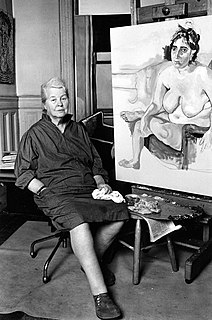A Quote by Michel de Montaigne
Dreams are faithful interpreters of our inclinations; but there is art required to sort and understand them.
Related Quotes
And when we look in through the windows, all we see are shadows. And when we try and listen, all we hear is a whispering. And we cannot understand the whispering, because our minds have been invaded by a war. A war that we have both won and lost. The very worst sort of war. A war that captures dreams and re-dreams them. A war that has made us adore our conquerors and despise ourselves.
What we look forward to, and the great promise of the gospel, is that whatever our inclinations are here, whatever our shortcomings are here, whatever the hindrances to our enjoying a fullness of joy here, we have the Lord's assurance for every one of us that those in due course will be removed. We just need to remain faithful.
It's good to be young and full of dreams. Dreams of one day doing something 'insanely great.' Dreams of love, beauty, achievement, and contribution. But understand they have a life of their own, and they're not very good at following instructions. Love them, revere them, nurture them, respect them, but don't ever become a slave to them. Otherwise you'll kill them off prematurely, before they get the chance to come true.
What sort of love is this love that we have for countries? What sort of country is it that will ever live up to our dreams? What sort of dreams were these that have been broken? Isn't the greatness of great nations directly proportionate to their ability to be ruthless, genocidal? Doesn't the height of a country's 'success' usually also mark the depths of its moral failure?
We have more poets than judges and interpreters of poetry. It is easier to write an indifferent poem than to understand a good one. There is, indeed, a certain low and moderate sort of poetry, that a man may well enough judge by certain rules of art; but the true, supreme, and divine poesy is equally above all rules and reason. And whoever discerns the beauty of it with the most assured and most steady sight sees no more than the quick reflection of a flash of lightning.
Dreams are self-created, but dreamers often do not understand the images that their own minds produce. Therein lays the essential paradox of dreams; dreams reveal that we all possess subconscious ability. Furthermore, our subconscious mind, as it is revealed through dreams, proves itself to be talented, artistic, insightful, perceptive and intelligent.








































